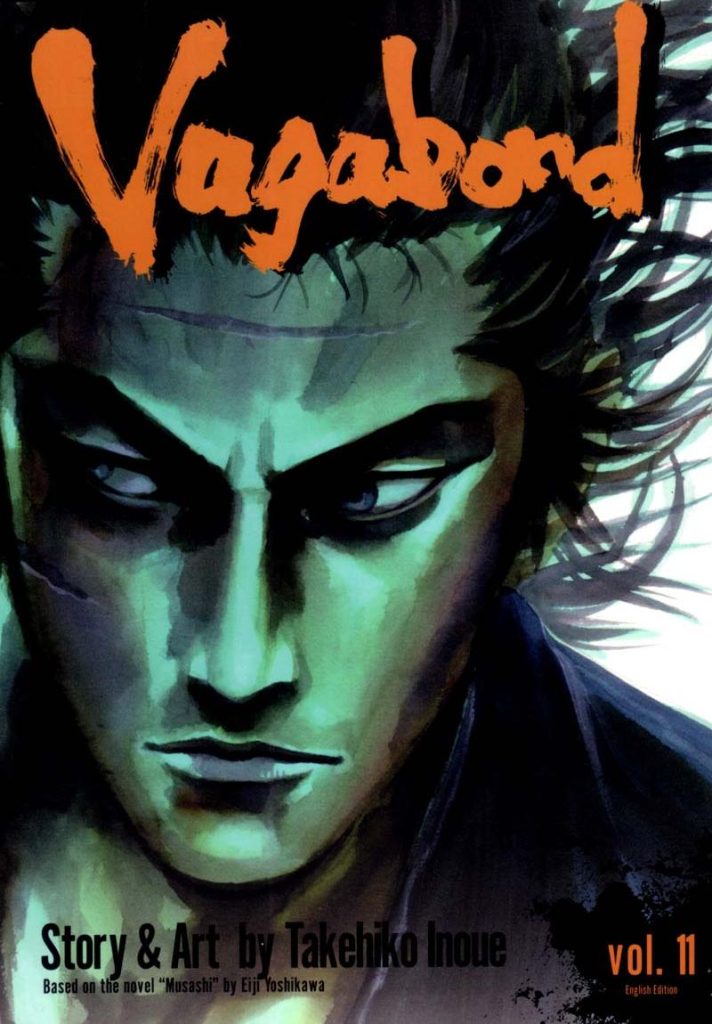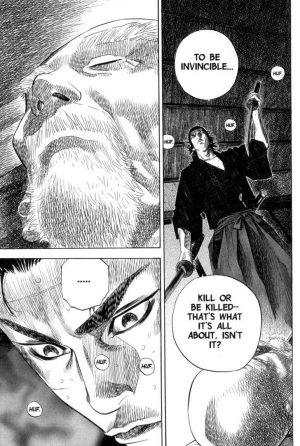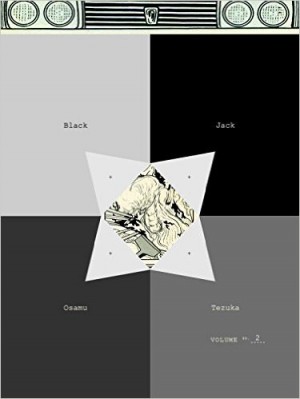Review by Karl Verhoven
There’s been a slight feeling of repetition as Vagabond continues, with Takehiko Inoue caught in a trap of his own making. The series concerns the growth of Miyamoto Musashi into a master swordsman, which inevitably means his coming up against a succession of other talented swordsman, leading to repetition despite the use of different locations.
That swordfighting is always dazzlingly illustrated, and over the earlier volumes overshadowed the accompanying spiritual aspects, but Inoue is a master at manipulating those. In Vol. 10 Musashi battled his way through to the master of the Yagyū organisation only to discover an infirm old man lying in his bed. Killing him to take a scalp would be a cowardly act, but as seen on the sample art, Mushashi considers it. However, in what’s a masterful hundredth chapter for the series, Inoue instead introduces a deeper motivational theme for Musashi. Or to be correct, he reintroduces that theme. One of Vagabond’s drawbacks is that everything being so extended means there are gaps of several volumes between the time a character is first seen and when they return to prominence, and Inoue’s not great at reminding readers who they are. In this instance, though, it’s quickly picked up.
Vol. 11 is a transitional volume, yet a pivotal one. Being told “Invincible? It’s just a word” is a revelation that shakes Mushashi to his core, and sets him off on the next stage of his journey. Perhaps he’s been misguided all along. Having reunited with Otsū, Musashi’s confidence is so undermined he deserts her, along with Jōtarō, although they’re not to be shaken that easily, and how successful their following will be plays out in Vol. 12. In the meantime, though, Musashi may not be centre stage, but his influence on events and conversations is substantial.
This has been a far more contemplative volume than expected from the set-up, yet one that’s absorbing from beginning to end. It’s more easily found as part of the fourth Vizbig edition of Vagabond.





